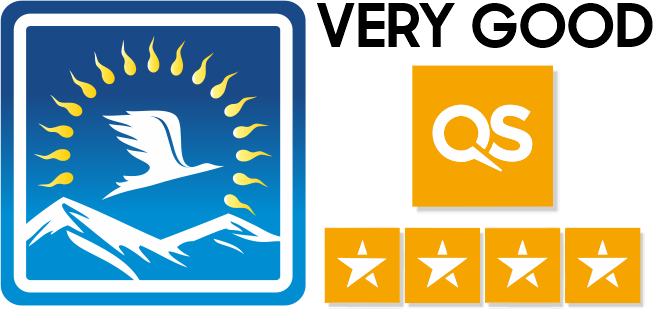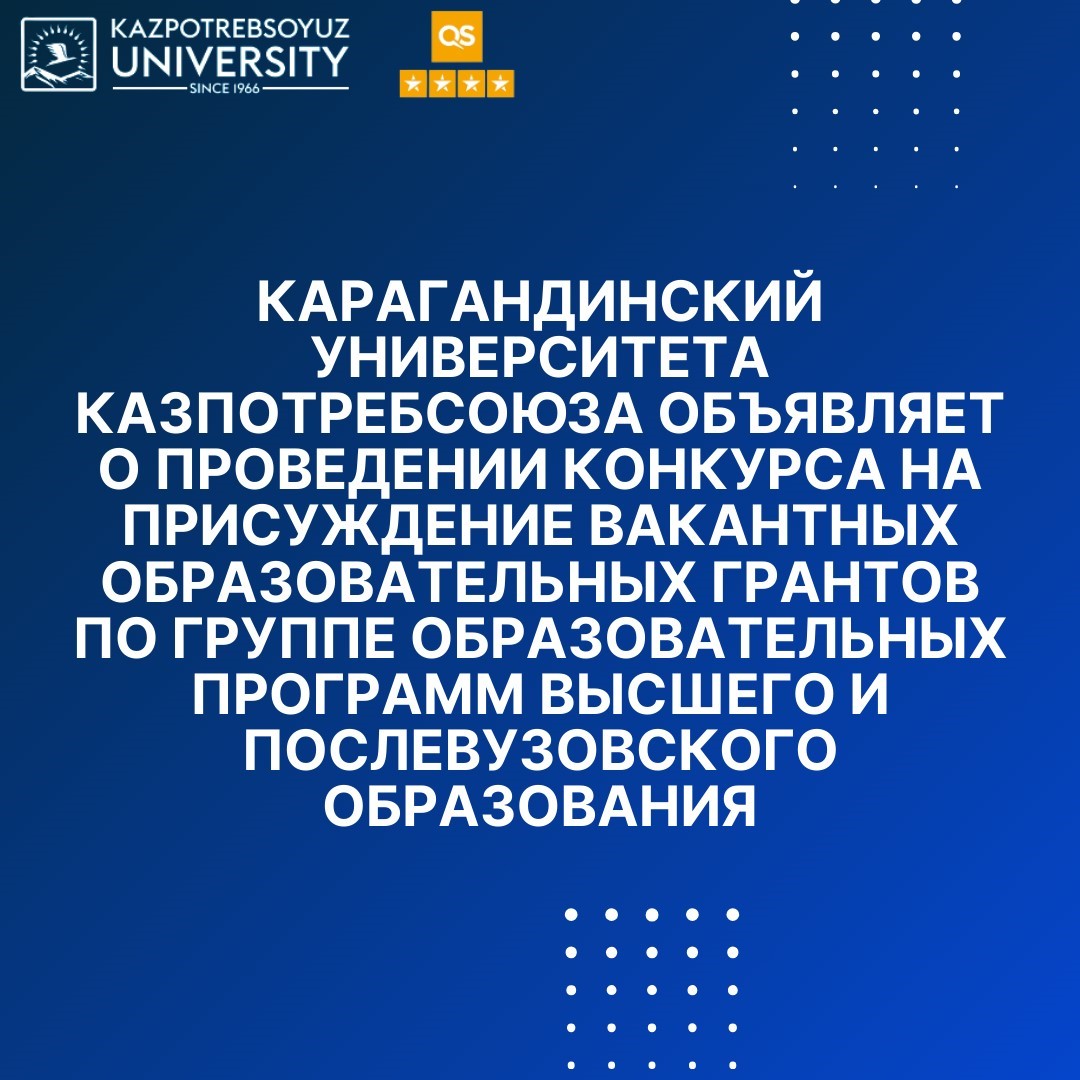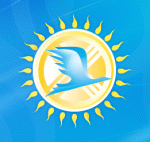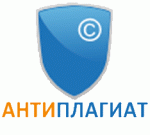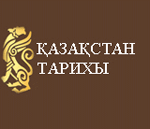-
Speciality Code:
7М11102
Speciality Name:
Tourism (profile direction)
Faculty:
Amenities
-
2021-22 Contingent of master students on educational program for1Master students, studying on the basis of the state educational order-Master students, studying on a paid basis1
The contents of the educational master program in 7М11102 "Tourism" are assumed by studying of such disciplines as "Tourism economy", "Professional ethics and etiquette in the tourism industry", "Cultural and leisure activity in the tourism industry", "Technology and practice of a touroperating", etc.
Experts of this direction have innovative thinking, are capable to think creatively and to approach creatively the solution of standard and non-standard micro and macro economic tasks. Own the advanced information technologies, are capable to expand independently knowledge, skills in professional activity at the level of micro and macroeconomics, have skills of professional communication and cross-cultural communication, are capable to work in team and to be integrated into conditions of world business, are ready to the solution of socially important national and regional tasks
Graduates of a magistracy according to the educational program 7М11102" as objects of professional activity can choose "Tourism":
by profile preparation: the top management of the public and economic board, consulting, expert and other enterprises and the organizations of the industry of tourism and hospitality, authorized body on tourism of the Republic of Kazakhstan, his division on places;
The academic degree is appropriated to the graduate:
- in the profile direction - the Master in the field of services in the specialty "7М11102 – Tourism".
Training term:
- in the profile direction - 1 year
Form of education – internal.
| Program degree: The master in the field of services in 7М11102 "Tourism | |
|---|---|
| Degree and term | Unary degree (one university) (70 ECTS – the credits / 28 kaz. credits) |
| Educational institution | Karaganda economic university of Kazpotrebsoyuz |
| Accreditation | Independent Kazakh Agency for Quality Assurance in Education (IKAQAE) http://nkaoko.kz/ |
| Action term | This program is approved by the University for a period of 1 year for the persons receiving degree at the university since 2018 |
| Level | QF for ESHE (A qualification framework for the European space of the higher education): 2nd cycle; EQF (European qualification framework): level 7; NFQ (national frame of qualifications): level 7 |
- A) Purpose
- The purpose of this master program is providing the appropriate conditions for preparation of the highly qualified competitive personnel in the sphere of tourism having profound theoretical knowledge, research skills, seeking for constant professional growth and personal development
Successful graduates have to show:
Ability to formulate and solve modern practical problems, to plan and to carry out successfully administrative activity in a business environment;
ability to analyze activity of tourist firms, to make the choice of necessary forms of tourist management;
on the basis of the system analysis to be able to build and use models for the description and forecasting of processes, the phenomena and practical situations, carrying out at the same time their qualitative and quantitative analysis and synthesis.
- The purpose of this master program is providing the appropriate conditions for preparation of the highly qualified competitive personnel in the sphere of tourism having profound theoretical knowledge, research skills, seeking for constant professional growth and personal development
- B) Characteristic
- 1.Discipline/area of a subject
- Basic disciplines
Foreign language (professional)
Management
Psychology
Management of tourism at the state and regional levels
Tourism Economics
Professional ethics and etiquette in the tourism industry
Cultural and leisure activities in the tourism industry
Technology and practice tourioperating - 2.General information / Specialization
- At implementation of the educational program of specialty 7М11102 "Tourism" the credit and modular system of the organization of educational process based on the modular principle of curricula, use of system of test units and the appropriate educational technologies is applied
- 3.Direction
- Service
- 4.Features Training of masters in the field of services, fixing of the mastered knowledge by participation in mobility of the international practice
- C) Employment and further training
- 1.Employment
- The objects of professional activity of graduates are:
with specialized training: government bodies related to the organization of tourism (ministries, akimats, their regional divisions and structures), public and private companies engaged in the tourist, hotel and restaurant business, consulting companies of the tourist profile, marketing services of tourist enterprises, hotel and restaurant complexes, objects of tourism infrastructure - 2.Further training
- PhD doctoral studies
- D) Style education
- 1.Approaches to studying and training
- In educational process it is widely used innovative forms of training (business games, cases, a debate, round tables, discussions, the review of literature, individual and group projects), master classes.
- 2.Assessment methods
- Critical self-assessment of and peers, reports on projects, assessment of actual data, critical analysis of an incident, seminars. Essay and presentations.
- E) Program providing
- 1.General competencies
The program meets the requirements of the State Compulsory Standard of Postgraduate Education to ensure the quality of academic programs at the second level of the cycle.
This includes general competencies (also known as key skills) of the expected second-year graduates (see the website http://adilet.zan.kz/eng/docs/P1200001080).
The following competencies are the consolidated and most characteristic competencies for this program:
GC1
Apply management skills, psychological knowledge and communication skills in terms of foreign language education in professional activities
GC2
To have skills of organizational and managerial activity at the level of state structures and private enterprises of the tourist industry
PC1
To be able to analyze and assess the state of tourism in a regional context by main types of tourism
PC2
Have the skills to develop new tourism projects that meet the requirements of the tourism industry, the objectives and resources of regional development, identify priority areas of tourism activities, make the necessary regulatory and technical documentation
PC3
Integrate knowledge in the field of tourism to expand skills and abilities - 2.Specific Competences
be able to analyze and evaluate modern indicators of the social, economic and political development of the country and regions
be able to analyze advanced scientific and technical experience and technology trends
be able to perform experimental studies in the field of hospitality and tourism
own tools for processing economic data, analysis of calculations and justification of the findings
- 1.General competencies
- F) Full list of learning outcomes for this program
- In the context of professional practice, in work in organizations, institutions and companies, graduates can demonstrate the ability to:
have an idea:
• about theoretical and practical directions on studied questions;
• about the main trends in the development of the modern tourist market;
• on the laws of tourist activity and their manifestation in the business environment;
• on the state and development of global business partnerships;
• know:
• international tourist markets and tools;
• psychological and social factors of experimental work;
• empirical generalization, model, pattern of development of the tourist market;
• be able to:
• formulate and solve modern practical problems, plan and successfully carry out management activities in a business environment;
• analyze the activities of travel companies, make the choice of the necessary forms of tourism management;
• on the basis of system analysis, build and use models to describe and predict processes, phenomena and practical situations, while carrying out their qualitative and quantitative analysis and synthesis;
• navigate in computer science and work on a computer in the course of professional activity;
• present the results of the work done in the form of reports, abstracts, articles, papers;
• have skills:
• methodology, logic and technology for conducting analytical work;
• conducting independent experimental research work;
• updating of knowledge in the process of professional activity, ensuring the active use of new information in the business environment;
• be competent:
• in matters of money, the tourist market and other areas of tourism.
- In the context of professional practice, in work in organizations, institutions and companies, graduates can demonstrate the ability to:
- Psychology
- Prerequisites: philosophy, sociology, culturology.
- Post-requisites: Pedagogy, Methods and technologies of teaching, pedagogical practice.
- Purpose: training of undergraduates in the basics of psychology of higher education, expansion of their professional capabilities in terms of applying psychological knowledge in the field of pedagogical activity.
- Brief description of the course: Introduction. The subject, tasks and structure of higher school psychology. Education as a global object of higher school psychology. Psychological foundations of the learning process. Psychology of cognitive activity of students in the learning process. Psychological methods and means of increasing the effectiveness and quality of teaching in modern conditions. Management of the learning process. Learning as a subject of educational activity. Psychological basis of the process of education. The problem of education in higher education. Education and the formation of professional self-awareness. Problems psychodiagnostics professionally-oriented personality. Psychological counseling of students and teachers, taking into account the profile of the future professional activities of a specialist. Psychology of pedagogical communication. Psychology of pedagogical influence. The problem of interpersonal interaction between the teacher and students.
- The expected results:
- to know the prospects for the development of psychological science and to understand the role of psychology in the professional activity of the university teacher;
- to apply in various spheres of professional activity methods of studying characterological features of people and psychological influence on students and student groups;
- carry out analytical and synthetic activities in assessing the possibilities and limitations of psychological techniques in managing conflicts in the pedagogical process of the university, the psychological factors of effectiveness and optimization of the educational process, stimulating the educational and cognitive activity of students, etc. and formulate conclusions on this basis;
- present the interpretation of the results of psychological diagnostic techniques, the study of the psychological factors of the educational process and the educational and cognitive activity of the student in various forms of communication (characteristics, references, projects, mini-studies, etc.).
- the need for personal development and professional self-education.
- Name of the lecturer: Kenzhebaeva S.K.
- Foreign language (professional)
- Prerequisites: Foreign language, Kazakh / Russian language in the volume of the university course.
- Post-requisites: foreign language at the level of international standards B2, as well as LSP - a language for special purposes.
- Purpose: systemic deepening of communicative competence within the framework of international standards of foreign language education on the basis of further development of skills and abilities of active language skills in the professional work of the future master.
- Brief description of the course: The organization of the financial industry. Regulation and Deregulation. Indefinite. Parts of speech – General overview. Retail banking. Commercial and investment banking. The future of bank branches. Continuous. Business correspondence 1 Formal and informal style 1. Perfect, Perfect Continuous. Revision of grammar and lexical material. Loans and credit. Business correspondence. Accounting. Types of Accounting. Central banking. Monetary policy. Money and banking. Герундий. Types of banks. Banking system. Financing international trade. Clarifying Incoterms. Revision of grammar and lexical material. Meeting 1. Meeting 2 Controlling meetings. Concluding a meeting. Foreign exchange. Foreign exchange markets. Exchange rates. Currency trading. Balance Sheet 1. Balance Sheet 2. Asset management. Regulating the financial sector. Revision of lexical and grammar material. Final test.
- The expected results:
- Ability to conduct dialogical and monologic speech in English;
- Conduct discussions on professional, business and everyday topics;
- To perceive English-speaking speech by ear (professional terminology);
- Mastering the skills of business written communication;
- Reading and translating texts by profession with a dictionary and without a dictionary;
- Understand the content of the read;
- Transfer the contents of the read;
- Use of reference literature (explanatory and other dictionaries, reference books, encyclopedias).
- Name of the lecturer: Aubakirova G.T.
- Management
- Prerequisites: "Tourismology bases", "Planning and organization of tourist business"
- Post-requisites: Research practice
- Purpose: is development of the knowledge and skills in the management theory and practice. Discipline focuses on the basic roles, skills and functions of management, with special attention to managerial responsibility for effective and efficient achievement of goals. Special attention is given to social responsibility, managerial ethics, and four functions of manager (planning, organizing, motivating and controlling). The course material will be useful in planning careers, managing relationships with other people, making complex decisions, designing jobs, becoming a leader, and making sense of today’s – and tomorrow’s corporate world. This course will also help you understand some of the challenges involved in both managing and being managed. Ultimately, the tools and skills developed in this course should equip you to become more effective contributors to organizations that you join.
- Brief description of the course: Organization and Management. Management Evolution. Internal and External Environment of the Organization. Ethics and Social Responsibility. Communication Processes in Management. Decision Making in Management. Organization as a Function of Management. Motivation in Management. The Controlling Process in Management. Leading and Leadership: Power and Influence. Stress Management, and Conflict Management. Change Management.
- The expected results:
- Demonstration of the knowledge and skills in the management area
- Applying of the theoretical knowledge and understanding what organizations are all about and what is involved in becoming productive and satisfied members of them
- Development of the skills of argumentation through the searching, analyses and interpretation of the information
- Development of the presentation skills
- Development of the self-studying skills
- Name of the lecturer: Abdukarimova А.Т.,Ulakov S. N.
- "Tourism economy" 2 credits / 3 ECTS
- Prerequisites: "Tourismology bases", "Planning and organization of tourist business"
- Post-requisites: Research practice
- Purpose: profound studying of contents, a role and the place of economy of tourism in the system of economic sciences, studying of international experience of the organization of economy of tourism.
- Short description of a course: Introduction to a course. Definition of economy as sciences in relation to tourism. Branch of economy in the system of national economy. Theoretical bases of tourism. Structural aspects of studying of economy of tourism. Enterprise as subject of market economy. Analysis and economic assessment of tourist resources, infrastructures and industries of tourism.
- The expected results: to know the nature and specifics of economy of tourism; to gain practical skills according to prospects and features of management of tourism at the branch level; to be able to adapt them for justification of problems of economy, interrelations at the micro and macro levels; to have communicative abilities in the field of tourist resources, infrastructures and the industries of tourism; to fix knowledge and practical skills in the field of current problems of economy of tourism in modern conditions and concepts of economy of tourism.
- Full name lecturer: PhD Econ., associate professor Zhuspekova A.K.
- Name of the discipline: Tourism management at the state and regional levels
- Prerequisites: Microeconomics, Macroeconomics.
Post requisites: preparation of the master's project
Purpose: to obtain a systematic understanding of the various levels of management in the field of tourism, learn to identify the features and problems of organizing and managing tourism enterprises and make informed management decisions.
Short description of course: Region: approaches to the definition. Basic concepts, subject and method of studying the regional economy. Factors of development and tasks of the economy of regional tourism. The main objectives and directions of the state policy of regional tourism. System economic analysis and modeling of regional tourism processes. State regulation of the tourism industry in the Republic of Kazakhstan.
Expected results: the undergraduate student should be familiar with methodological approaches, methods and models of management in tourism activities, as well as methods for selecting optimal solutions in standard and non-standard situations in the field of tourism.
Full name lecturer: Ph.D. Econ., associate professor Kenzhebekov N. D.
- Prerequisites: Microeconomics, Macroeconomics.
- Name of the dicipline: Managing the development of the tourism industry
- Prerequisites: Microeconomics, Macroeconomics
Post requisites: preparation of the master's project
Purpose: learn how to adjust the goals and program of action of tourism organizations, depending on the state of the market, creating competitive products.
Short description of course: Content and elements of a tourism enterprise management system. Types of organizational structures of the management system. The economic risk management system of a tourist enterprise. Classification and management of tour operators. Psychological aspects in the management of personnel of a travel company, international cooperation in the field of tourism.
Expected results: When studying this course, the undergraduate will be able to identify the main aspects of the organization of the management of tourism activities in the Republic of Kazakhstan and abroad.
Full name lecturer: Ph.D. Econ., associate professor Kenzhebekov N. D.
- Prerequisites: Microeconomics, Macroeconomics
- Name of the discipline: "Professional ethics and etiquette in the tourism industry" 3 credit / 5 ECTS
- Prerequisites: "Fundamentals of Tourism", "Planning and organization of tourism business"
Post requisites: preparation of the master's project
Purpose: To study the theoretical and practical skills of the fundamentals of corporate culture and personnel management in the tourism industry
Short description of course: Ethics as a science and the phenomenon of spiritual culture. Subject and categorical apparatus of ethics. Levels of ethical knowledge. The history of the development of ethical teachings. Morality as a regulator of social behavior. The historical development of morality. The history of the development of ethical teachings. Essence, structure and main problems of applied ethics. Professional ethics of a specialist in the field of tourism. Professional and ethical views in tourism activities (categories, norms, principles). Professional image of a specialist in the field of tourism. Professional standards of tourist activities. Professional and moral requirements for specialists in the field of tourism. Etiquette models of behavior in professional activities. Ethics and etiquette of service relationships. Features of public speaking and culture of a business meeting. Culture of business conversation and dispute. Speech etiquette. Etiquette of greetings and presentations.
Expected results: undergraduates should be able to clearly present information about the problems of development of the tourism industry and the results of a practical analysis of the conditions and factors influencing this development; undergraduates should improve the skills of independent work management staff in the field of tourism.
Full name lecturer: Ph.D. Econ., Associate Professor ND Kenzhebekov
- Prerequisites: "Fundamentals of Tourism", "Planning and organization of tourism business"
- "Basics of professional and pedagogical communication" 3 credits / 5 ECTS
- Prerequisites: "Pedagogy", "Psychology"
- Post requisites: pedagogical practice
- Purpose: the formation of professionally significant qualities of undergraduates in the process of learning the basics of professional and pedagogical communication, arming them with knowledge of the theoretical foundations of the discipline. The main approaches to the description of personality, interpersonal relations, conflicts are revealed.
- Short description of course: The historical aspect of the development of communication in folk pedagogy. Communication and folk wisdom. Analysis of the problem of communication in the domestic pedagogy. The development of communication problems abroad. Analysis of the problem of communication in the domestic pedagogy. Innovative teachers about pedagogical communication. The objectives of professional and pedagogical communication. Functions of professional and pedagogical communication. The content of professional and pedagogical communication. Means of professional and pedagogical communication. The structure of professional and pedagogical communication. Features styles of pedagogical leadership. Psychological climate of communication. Psychological barriers to communication. Communication in conflict situations
- Expected results: the undergraduate student should: show a deep knowledge of the content of the activities of the teacher in an educational institution, according to the method of organizing independent activities of students; know the method of organizing the educational process in an educational institution; be able to correctly assess the trends in the development of modern pedagogy and the practice of education
- Full name lecturer: Doctor of pedagogical sciences, professor Minzhanov N. A., Ph.D. Econ., professor Klishina M. V.
- Name of the discipline: "Innovations in hotel and restaurant services" 3 credit / 5 ECTS
- Prerequisites: "Fundamentals of Tourism", "Planning and organization of tourism business."
Post requisites: preparation of the master's project
Purpose: to form undergraduates the idea of innovation in tourism
Short description of course: Organization and management of the service delivery process. Basics of the organization of the enterprise. The organization of the main production at the enterprises of the service sector. Organization of quality control of services and products. The organization of customer service. Fundamentals of the organization of wages at service enterprises. Organization of production infrastructure of service enterprises. Basics of corporate planning. Marketing Planning Planning the volume of production and sales of services.
Expected results: acquire practical skills in analyzing the state of innovative services on a regional and national scale; reveal the principles and methods of carrying out activities innovative services at the professional level
Full name lecturer: Ph.D. Econ., Associate Professor Kenzhebekov N. D.
- Prerequisites: "Fundamentals of Tourism", "Planning and organization of tourism business."
- Name of the discipline: "Cultural and leisure activities in the tourism industry" 3 credit / 5 ECTS
- Prerequisites: "Fundamentals of Tourism", "Planning and organization of tourism business."
Post requisites: preparation of the master's project
Purpose: study of the theoretical foundations of tourism as a specific type of leisure activity, consideration of the role and significance of tourist leisure in the history of the development of cultural and leisure activities
Short description of course: Tourism as a specific type of leisure activity. Socio-cultural potential of tourism in modern society. The content of cultural and leisure activities. Entertainment industry in the field of tourism. National parks as a tourist destination. Gambling as part of the entertainment industry. Animation and its types. Animation and organizational structure of a tourist facility. Tourist animation programs. Restaurant animation. Organization of family leisure. Organization of youth (student-go) leisure. Segmentation of the market of animation services.
Expected results: the birth and development of tourist leisure; concept and organization of leisure; animation and its types; entertainment industry in tourism; organization of work of the animation team in the tourist complex.
Full name lecturer: Ph.D. Econ., Associate Professor Mataeva B.T.
- Prerequisites: "Fundamentals of Tourism", "Planning and organization of tourism business."
- Name of the discipline: "Technology animation programs" 3 credit / 5 ECTS
- Prerequisites: "Fundamentals of Tourism", "Planning and organization of tourism business."
Post requisites: preparation of the master's project
Purpose: To study the theory and practice of animation and its application in Kazakhstan.
Short description of course: concept, functions and principles of animation, types of animation, development of animation programs, tourist animation, hotel animation, forms and tasks of animation programs, strategic planning in animation activities, technology for creating animation programs, international experience in organizing animation programs, restaurant animation.
Expected results: learn practical skills in the application of animation in tourism
Full name lecturer: Ph.D. Econ., Associate Professor Mataeva B.T.
- Prerequisites: "Fundamentals of Tourism", "Planning and organization of tourism business."
- Name of the discipline: "Technology and practice of touring" 3 credit / 5 ECTS
- Prerequisites: "Fundamentals of Tourism", "Planning and organization of tourism business."
Post requisites: preparation of the master's project
Purpose: to form undergraduates of modern ideas about the basics of applied touring, the principles of organizing the service of tourists, the formation of the marketing network of the tour operator and the promotion of the tourist product, visa support leaving the country.
Short description of course: the concept and essence of touring. The reasons for the emergence of the business of tour operators. The main differences between the tour operator and travel agent. The differences in the income system. Differences in the ownership of the tourist product. Varieties of tour operators. By type of activity. Mass market operators. The legal basis of the activities turopereytinga. The procedure for registration and execution of basic documents. Development of tourist products. Relationship with suppliers: travel agents, transport companies, hotels, entertainment companies, insurance companies, catering companies and others. Conclusion of contracts. Development of the tour and route. Work with clients. Advertising activity. Formation and development turopereytinga in Kazakhstan.
Expected results: know and understand the role of applied touring in tourist activities; be able to apply the basic principles of the organization of tourist services; be able to build tourist routes; analyze the activities of the travel agency; have the skills of independent work.
Full name lecturer: Ph.D. Econ., Associate Professor Mataeva B.T.
- Prerequisites: "Fundamentals of Tourism", "Planning and organization of tourism business."
- Name of the discipline: "Tourist formalities and security in tourism" 3 credit / 5 ECTS
- Prerequisites: "Fundamentals of Tourism", "Planning and organization of tourism business."
Post requisites: preparation of the master's project
Objective: the basics of theoretical knowledge, as well as to familiarize with the practical aspects of cost management in tourism.
Short description of course: Tourism as an activity. Technology transport service tourists. Technique and technology activities of tourism organizers. Technique and technology of recreational and animation activities in tourism. Technology to create a tourist product
Expected result: to gain knowledge of the theoretical foundations of registration of entrance documents; be able to apply basic concepts and principles of hospitality in addressing specific economic situations and develop effective measures to attract tourists; prepare students for self-employment through the study of technology of inbound tourism
Full name lecturer: Ph.D. Econ., Associate Professor Mataeva B.T.
- Prerequisites: "Fundamentals of Tourism", "Planning and organization of tourism business."
